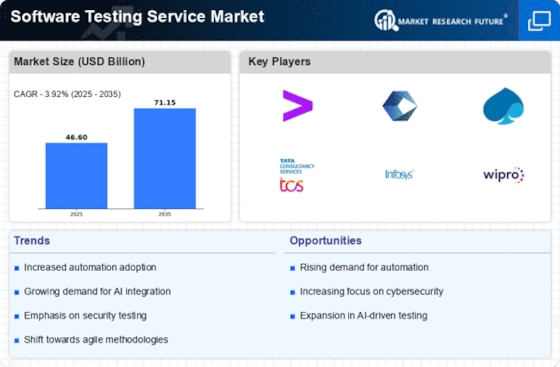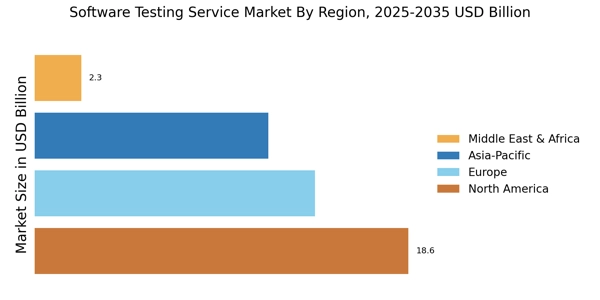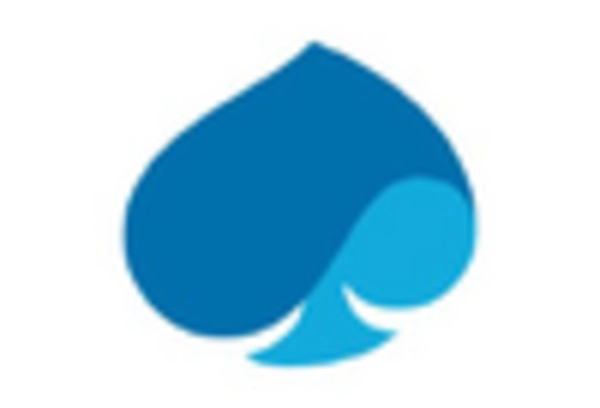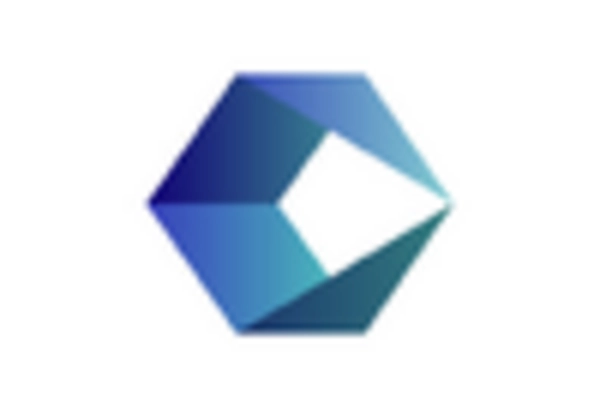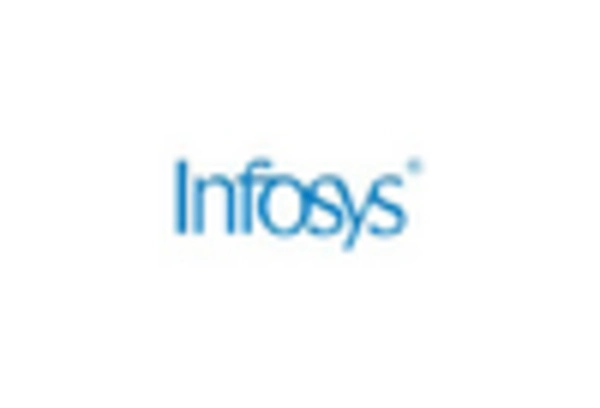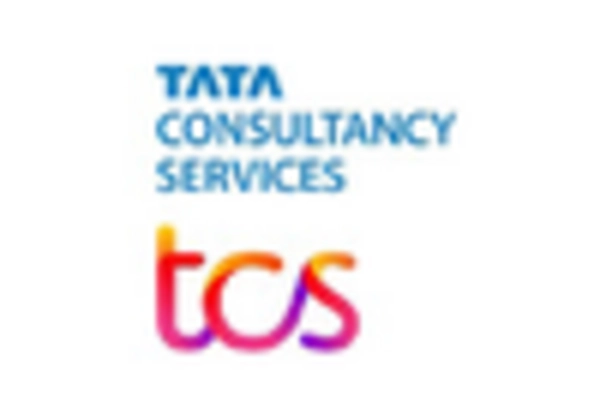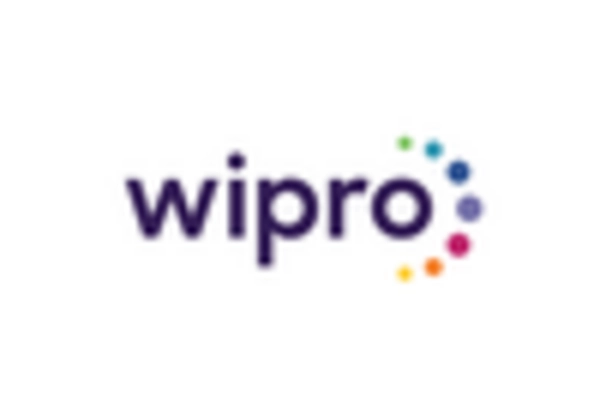Rising Demand for Quality Assurance
The increasing complexity of software applications has led to a heightened demand for quality assurance in the Software Testing Service Market. As organizations strive to deliver flawless products, the need for comprehensive testing services becomes paramount. According to recent data, the software testing services market is projected to grow at a compound annual growth rate of approximately 12% over the next five years. This growth is driven by the necessity for businesses to enhance user experience and maintain competitive advantage. Consequently, companies are investing more in testing services to ensure that their software meets the highest standards of quality and performance. This trend indicates a robust future for the Software Testing Service Market, as organizations prioritize quality assurance in their development processes.
Integration of Artificial Intelligence
The integration of artificial intelligence (AI) into testing processes is transforming the Software Testing Service Market. AI technologies enable automated testing, which enhances efficiency and accuracy while reducing time-to-market. The market for AI-driven testing solutions is expected to witness substantial growth, with estimates suggesting a potential increase of over 20% in adoption rates within the next few years. This shift towards AI not only streamlines testing procedures but also allows for predictive analytics, enabling organizations to identify potential issues before they escalate. As businesses increasingly recognize the value of AI in testing, the Software Testing Service Market is likely to evolve, offering innovative solutions that cater to the demands of modern software development.
Emergence of Cloud-Based Testing Solutions
The emergence of cloud-based testing solutions is revolutionizing the Software Testing Service Market. These solutions offer scalability, flexibility, and cost-effectiveness, allowing organizations to conduct testing without the constraints of traditional infrastructure. The cloud testing market is projected to grow significantly, with estimates indicating a potential increase of over 15% in adoption rates in the coming years. This trend is particularly appealing to businesses seeking to optimize their testing processes while minimizing costs. Cloud-based testing enables teams to collaborate seamlessly, access resources on-demand, and execute tests in diverse environments. As more organizations transition to cloud solutions, the Software Testing Service Market is expected to expand, providing innovative testing services that leverage the advantages of cloud technology.
Shift Towards Agile and DevOps Methodologies
The adoption of Agile and DevOps methodologies is reshaping the Software Testing Service Market. These frameworks emphasize collaboration and continuous integration, necessitating a shift in testing strategies. Organizations are increasingly seeking testing services that align with Agile principles, enabling faster feedback loops and iterative development. The market for Agile testing services is anticipated to grow, driven by the need for rapid deployment and adaptability in software development. This shift not only enhances the efficiency of testing processes but also fosters a culture of quality within organizations. As Agile and DevOps continue to gain traction, the Software Testing Service Market is likely to evolve, offering tailored solutions that meet the demands of modern development practices.
Growing Importance of Compliance and Regulations
In an era where data privacy and security are paramount, the Software Testing Service Market is experiencing a surge in demand for compliance and regulatory testing services. Organizations are compelled to adhere to various standards and regulations, such as GDPR and HIPAA, which necessitate rigorous testing to ensure compliance. The market for compliance testing services is projected to expand significantly, as companies seek to mitigate risks associated with non-compliance. This trend underscores the critical role of testing services in safeguarding sensitive information and maintaining customer trust. As regulatory frameworks continue to evolve, the Software Testing Service Market is poised to adapt, providing specialized services that address compliance challenges.


